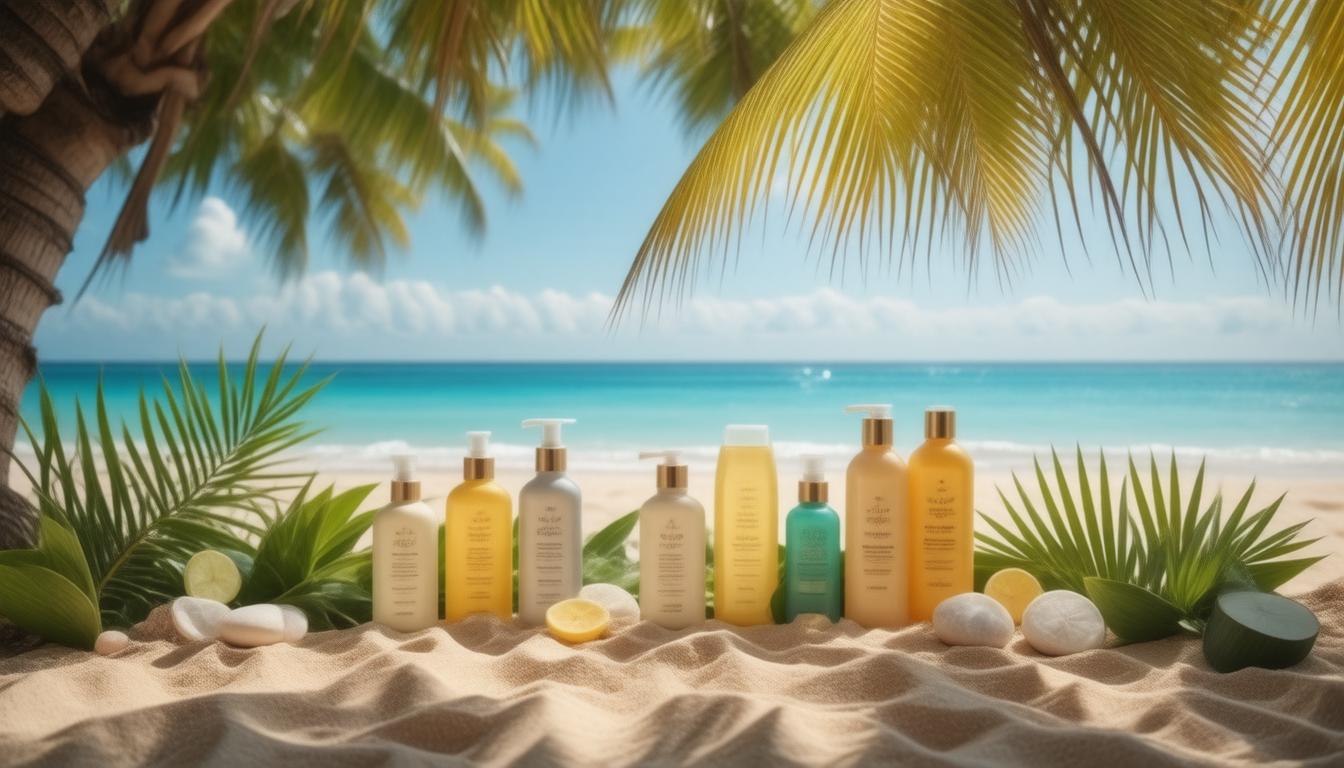With the increasing awareness of the harmful effects of sun exposure, finding the right sunscreen for your skin is more critical than ever. Among the various choices available on the market, natural sunscreens have gained considerable popularity. But what is a good natural sunscreen, and how does it differ from traditional formulas? This comprehensive guide will help you understand the benefits of natural sunscreens, what to look for, and our top recommendations.
What Is Natural Sunscreen?
Natural sunscreens are typically made from mineral-based ingredients such as zinc oxide and titanium dioxide, which physically block harmful UVA and UVB rays. Unlike chemical sunscreens that utilize synthetic compounds to absorb UV radiation, natural options reflect and scatter the sun’s rays. This often makes them a safer choice for your skin and the environment.
Benefits of Natural Sunscreens
- Skin-Friendly Ingredients: Natural sunscreens are generally free from harsh chemicals, fragrances, and other additives that can irritate sensitive skin. They are often better suited for those with skin conditions like eczema or rosacea.
- Broad Spectrum Protection: Most natural sunscreens provide broad-spectrum protection against both UVA and UVB rays. This means they protect against skin aging and burning, critical aspects in the prevention against skin cancer.
- Eco-Friendly: Many natural sunscreens are formulated to be biodegradable and reef-safe, minimizing their impact on marine life and ecosystems. This is particularly important considering the detrimental effects that certain chemicals can have on coral reefs.
- Long-Lasting Protection: Natural sunscreens tend to be more water and sweat-resistant, which can provide longer-lasting protection during outdoor activities, making them ideal for beachgoers and athletes alike.
What to Look For in a Good Natural Sunscreen
When searching for a quality natural sunscreen, consider the following factors:
- Active Ingredients: Look for mineral-based active ingredients such as zinc oxide and titanium dioxide. These ingredients typically provide a physical barrier against harmful rays.
- SPF Rating: An SPF of at least 30 is recommended for effective protection.
- Water Resistance: Choose products that offer water resistance for up to 80 minutes, especially if you plan to swim or sweat.
- Skin Type Compatibility: Different formulations cater to various skin types. If you have oily skin, opt for a lightweight gel or lotion, while creamy formulas may be better for dry skin.
- Free From Harmful Additives: Ensure the product is free from parabens, phthalates, and synthetic fragrances to avoid skin irritation or allergic reactions.
Top Recommendations for Natural Sunscreens
Here are some of our top picks for good natural sunscreens that combine efficacy with safe ingredients:
- Badger Sport Sunscreen SPF 30: This mineral-based sunscreen uses zinc oxide and offers broad-spectrum protection. It is water-resistant for up to 80 minutes and features nourishing ingredients like organic sunflower oil and beeswax.
- Thinksport Safe Sunscreen SPF 50: This sunscreen is highly rated for its high SPF and non-toxic, eco-friendly formulation. It’s water-resistant and is free from harmful chemicals, making it perfect for active individuals.
- SunBum SPF 50 Sunscreen Lotion: With its lightweight and creamy texture, this sunscreen is perfect for quick application. It’s also packed with vitamin E, known for its skin-nourishing properties, and is suitable for all skin types.
- Babo Botanicals Clear Zinc Sunscreen SPF 30: Ideal for sensitive skin, this sunscreen is made with organic ingredients and is free from nut allergens, gluten, and dairy. It provides clear coverage without leaving a white cast.
- Blue Lizard Australian Sunscreen SPF 30: This popular choice offers effective mineral-based UV protection. It changes color in the presence of UV rays to remind you when it’s time to reapply, making it a practical option for outdoor enthusiasts.
How to Apply Natural Sunscreen Effectively
- Apply Generously: Use at least an ounce (about a shot glass full) for full-body coverage. Ensure that all exposed areas, including the back of your ears and the tops of your feet, are covered.
- Reapply Frequently: For maximum protection, reapply every two hours, or after swimming or sweating.
- Consider Timing: The sun’s rays are the strongest between 10 am and 4 pm. If possible, seek shade during these hours or wear protective clothing.
Conclusion
Choosing the right sunscreen is essential for protecting your skin without compromising your health or the environment. Natural sunscreens provide effective UV protection while using safe, nourishing ingredients. By considering the recommendations outlined in this guide, you can confidently select a natural sunscreen that suits your lifestyle and skin type. So, when you ask, ‘What is a good natural sunscreen?’ remember to look for those mineral-based options that align with your values and skin needs. Embrace the sun safely and enjoy the outdoors with peace of mind!



